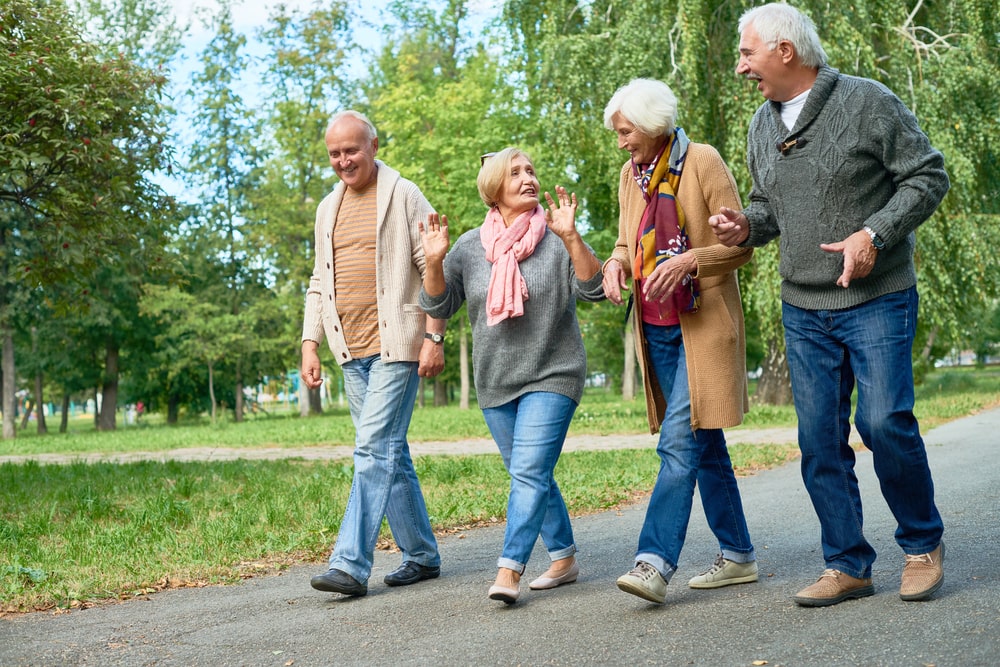
You may be surprised but these are the activities that pose risks for seniors above 75:
Are you a proud senior of 70+ who is still out and about and happy about your life? That’s amazing because you deserve to, and you need all the happiness in the world. But as soon as we all reach this milestone, we must be more careful about the activities we undertake and realize that, as much as we want to, we’re not in our 20s anymore, and some of them may do more harm than good to our health.
If you’re facing this issue too and you’re not sure what I am talking about, keep reading the article. Some of these activities might surprise you…
1. Skipping regular health check-ups
One of the first activities that pose risks for seniors is skipping health check-ups just because “you feel good.” As we age our bodies become more fragile and more prone to various health conditions therefore we must take care of ourselves more than ever.
Going to the doctor isn’t exactly pleasant, but skipping appointments may lead to conditions that could have been treated or minimized if they were discovered earlier. You can have a better quality of life and enjoy your older years with peace of mind if you are proactive about getting regular health screenings and check-ups.
If you’re afraid to go alone, ask a family member or a close friend to come with you.










These 10 warning points about abandoning and surrendering to neglect
and inactivity, in the advanced ,70+ years of age season of life in particular, is very
helpful advice . Unfortunately, I witnessed many of these neglectful
pitfalls of old age happen to my own
father as he literally fell victim to his own
inactivity . Defying the odds., he actually
lived to the very old age of 97 before his bodily abilities gradually but surely
dissipated until he could no longer
function and it took his life from him. I now see this as a warning to me to not
fall into the same traps as I approach the
age of 70 years old in just 3 more years from now.
I appreciate this very much. I am guilty of some. I particularly appreciate the suggestion on exercise and will pay more attention to what I do at the gym.
Makes people over 70 sound like doddering old fools. How about useful advise like this, “When cliimbing Kilimanjaro, don’t refuse the walking poles because you’re afraid you’ll look weak. Avoid fractures, ask for the poles. “
Don’t worry, be happy!
I am 71 years old, and I don’t have any support at all from my two adult sons, of whom I cared for without the financial support from their Fathers. My eldest son is a single Dad, and he allows his daughter to disrespect me, and my youngest continues to call me a bitch just because we are living in his home. They eat my food and keep the home very dirty, and when I would say something to my younger son, who owns the home, he would tell me to get my bitch ass out of his house. When I ask my ten-year-old granddaughter to pick up after herself, her Dad would be sitting there and does nothing about it. I contracted an infection around the stents in my heart last year, in December, and it was because of the mold in my son’s house. They don’t care, and I have no relatives here in the USA and have been alone by myself as long as I can remember. I’ve contacted the department of aging only for them to not render any help to me. I am tired and I cannot afford rthe price of rent.
This took common sense on my part and that was rare for me – at fifty years old, I quit smoking, made it the enemy, refused to let it dominate my needs and quit drinking alcohol, and I never was a heavy drinker, out all night and probably two mixed drinks in four hours….. I still rake leaves, vacuum, etc. etc. kept house and trim bushes, use the trimmer to cut lawn, no effort and stop every twenty mins. for water and rest on a bench……. take my time and I sleep like a baby with activity, as long as I tell myself to take breaks,……. that’s some Great Grandma advice. and i’m 83 years old with multiple vitamins every day and Blood Pressure Pills, Calcium and Potassium and Water Retention pills that eliminate fluid in my system…….. doing very well,,,,, Maddie Brocki.
Death in Christ is the answer. Scripture says, 70 to 80 is borrowed time. The most important Health advice is one’s Spiritual health. Have you committed your life to God? If not all the medicine all the wealth all the nothing, having everything will not matter. Your Soul is the MOST important thing in life. Get right with God and you are promised Life Eternal with a New Painless Body!
Do they make training training wheels for Harleys?